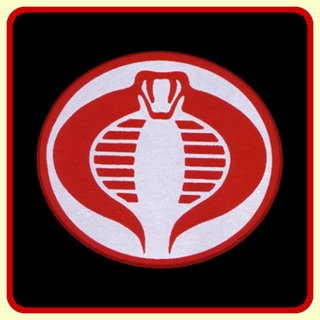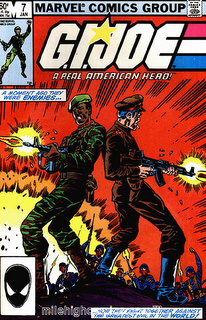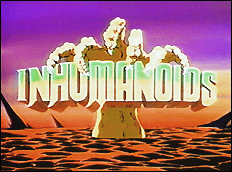Wednesday, May 31, 2006
Monday, May 29, 2006
My Last Name
Note: This was my feature for my journalism class. Unlike most articles on this website, it's not humorous, not bullshit, and edited.
As a child, I used to ask my father big questions. “Why is the sky blue?” (The ocean reflecting the sea, he told me.) “Who was the worst person in history?” (Hitler or Stalin.) There was one question he couldn’t answer, though.
“Where does the name ‘Stodalka’ come from?” He paused. He was sitting on the couch. I was at his feet. “We think the name is Czech.” He didn’t know? He was supposed to know. We had an identity, didn’t we? A family left behind in some old country? But he didn’t know. Culturally, I was suddenly a spaceman floating in zero gravity – no north, no south.
Was I Czech? Polish? German? Russian? Slavic? Stodalka was a nowhere name, and it haunted me.
I choose a lot of things about my identity – how I view anything over
$10 as a luxury, my decision to write, how I mutter to myself. But there’s nothing to ground me, no foundation. It’s just me, making my own history, trying to define myself. I wanted to know which culture, what familial house I belonged to.
When I was 17, I was on the computer, overhearing my parents talk after dinner. They were discussing my father’s family. Apparently, my uncle had shown a letter around the family, which completely changed the history they thought they had, and what we thought we had.
I didn’t particularly like my last name, growing up. Stodalka is a drawl. Stuh-dawl-ka. “Duh?” “Y’all.” “Kuh.” Stodolka is not a proud last name. Translated, it means small barn…or shed. I’m William Shed. Go to the stodolka, get my shotgun and beer.
William – shades of Shakespeare, a British, English name, yoked forcibly to Stodalka, an Eastern European name. It’s the name of my father, the name of his father.
My great-grandfather, “Jack” Stodalka, was born John Stodolka. Breaking away from his relatives in Minnesota, he moved to Canada, changing his first name to Jack reflects his tough, rough character (a former amateur boxer.), changing the second “o” to an “a” in Stodolka family made it easier to spell. A practical man.
Stodolka is the more common name, if you believe the phone books. But this mutation made it unique. We are perhaps the only Stodalka’s in the world. How many people can say that?
Still, my name – Stodalka -- is not a Forelli or a Fuji or a Fordingham. Those names are specific to places, while my name is specific to nowhere. We always believed it was European, but were only guessing. We don’t have a lot of cultural practices, facial characteristics, we see in others. We’re like a drop of water in the ocean, there and nowhere all at once.
The California State University psychologist Jean Phinney said ethnic identity is a construct, something people make up, to refer themselves to an ethnic group. It’s not fixed, but changes as people learn about their ethnicity and come to understand themselves. But I couldn’t do that -- I didn’t know where to start.
Which brings us back to that letter. In 2005, Ron Workman, an art dealer, was browsing through the Manhattan Flea Market. He came to a table selling old letters from the beginning of the 20th century. One caught his eye. There was nothing special about it, except the Hitler stamp – it could be worth something. He bought it for $60. There was an odd name on the front, started with “Stod.”
The Workmans found out the stamp wasn’t worth anything, but Ron’s wife Maxine wasn’t through with the letter. Her grandmother had emigrated from Austria, and had tried to find out what happened to her relatives left behind in Austria, in vain. Maxine dedcided she had to find out who the Stodolka on this letter was, and try and give that family something she never had. Maxine contacted Renee Steinig, President of the Jewish Genealogical Society of Long Island.
Steinig found Mike Stodolka, who was living in Minnesota, one of the sheds the Stodolkas left behind. Mike had been researching his name, leaving out lures on genealogy websites about Stodolka. Steinig found Mike on the internet and sent him the letter. Mike translated its contents, and sent it to us. It was a horrible illumination on the name.
I started to look into a family tree, started by a relative, online. My great-great-great-great-grandfather, Johann Stodolka, was born in Envy, a small town in the region of Upper Silesia, unGoogleable. I envy how he knew his origins. His great-great-grandsons settled in Minnesota. We knew we had moved from Minnesota to Richmound, a town in Saskatchewan that was predominantly German Catholic. That was as far as we could trace our relatives, before we found the letter.
Stodalka…we thought it was German. We were proud of being German. My grandmother can speak German. We were taught German. Hell, I got an A in my German class, and second-place in the Saskatchewan German Oratorical Contest. My family assumed that, yes, we were likely German.
I always doubted this. Stodalka did not sound German. It was not harsh sounding, like Rathaus or Heinrich.
Before the letter came to me, I wondered: If I did find out my true culture, attempt to imitate that culture, would it be an act? Was our new surname, with an “a” now our inherited house, really connected to anything? It’s what we live in, where our family is, what we inherit, but does it link us to other people, or a history Had we abandoned our old shed for a new shed? If we saw it, would we even recognize our old shed?
But when my family became the Stodalkas, we started building our own house, our own cultural identity, alone from the rest of the world. We weren’t German or Polish or Czech, because we had no connection to that culture, even in an abstract sense. We are simply Stodalka.
Until the letter came along. Mike, in searching for his family, came upon my Uncle John. Mike showed his genealogical research to John, but ultimately the letter was the compelling proof. My uncle shared its contents with our family. The lines were blurred, scratched in. In German, everything was hand written neatly on lines, except for two words, in a smaller typewritten font: “Auschwitz, den.”
It strikes me as a horrible irony – in this tragedy, among all the lives lost, where history’s horrible forces wiped out millions -- I found my history. We don’t know if he died there. We don’t know why he was sent in the first place – if he was Jewish, Communist, gay, a political radical, too Catholic. All I’ll probably know about Wladislaus is that we shared a name – Stodalka, Polish. He was defined by a nation, he was Polish. And he suffered for it when history crashed down upon him.
My mother, born Anderson, got some humour out of the revelation. As she puts it in private, “It’s nice to know we were on the right side of the ovens.” She could joke. But my grandparents hometown was German Catholic. In Richmound, all the dogs barked at the one Polish guy named Bimbo. I suppose, no one called the dogs off.
When my grandfather found out about Wladislaus, all he could do was ask, “Why?” Still, my grandparents research Stodolkas in Germany and Poland, strangers, to help find their roots.
My uncle will head down to Minnesota for a re-union of the US Stodalkas. My immediate family probably won’t go. Like them, I didn’t feel any different. In truth, I feel no more Polish than I had German.
Last Christmas, as usual, my family gathered – this time at my uncle’s large house, the fourth he had bought in ten years. At a Boxing Day party, late at night, my father a lawyer, and his brothers, an oil executive and a lawyer also, lit up their big Cuban cigars in my uncle’s big house and looked out over the sprawling Medicine Hat valleys and hills, probably talking about baseball. They had no problems, no black sheep in the family, no stereotypes, no defining traits. We’ve traveled a long way from being shed workers. We were rich and content.
When I’d found out I was Polish, I was disappointed – not because being Polish is something to be ashamed of. But I expected it would reveal who I was, or who I might become. But it didn’t. The name does not define me, or my family; we defined ourselves, not an old nation. The hard work of cultivating an identity remains ahead before me. And our future remains as vast, unseen, and empty as the hills surrounding my uncle’s house. My father and his brothers only looked on, while I wandered.
Saturday, May 27, 2006
I Am A Telemarketer
That is my status right now as a telemarketer. I'm working for Xentel, which sounds like an evil corporation. I'm trying to finish Catch-22, too.
I bought a three-piece wool suit, but I fear that it may have been gaudy. The colour's off. It's not nice, but whattayagonnado?
Anyway, that's all. Goodbye.
Wednesday, May 17, 2006
Pray For Me
It's a small thing, the City of Heroes online role-playing game. You can submit a story concept, as long as it's 100 words. I was 99, I think.
I signed up because I want to be a comic book writer later in life. Some kids want to be astronauts - that's what I wanted to be.
Now, I've been reading about comic book authors, and apparently all them got their break at my age. So if this works, hurray. If not, no go.
So in the game, there's this zone, Recluse's Victory. Players of super-heroes and supervillains fight for "dimensional anchors." If you win them, they turn the dimension "evil" or "good," depending on if you're a hero or a good guy. Now, these are pillboxes, static objects. But I turned this into a person. Here's my submission, 1 word under the 100 word limit:
Vic lives in Recluse's Victory, and if he chooses to murder the boss who fired him, then evil will dominate that dimension. Vic doesn't know Recluse turned him into a human dimensional anchor. This process is slowly driving Vic insane. He now sees his evil side as a man, "Nick", and his good side as "Paul." Freedom Phalanx and Arachnos fight to influence Vic. Just as Vic is about to shoot his boss, he decides to "kill" Nick instead. However, this kills Vic, because just as men can't be completely good or evil, Vic can't live without Paul or Nick.
Now, if I miscounted, go to hell and suck Hitler's balls while you're down there.
I hope I win. I'll tell you if I do.
Tuesday, May 16, 2006
Le Parkour
Well, imagine someone made a sport out of shit like that.
It's Le Parkour, and it's pretty entertaining to watch. Not cool, but entertaining.
I hope this link works.
Monday, May 15, 2006
Saturday, May 13, 2006
G.I. Joe: A Real American Hero?

Cobra is odd by any standard definition of terrorist. They seek vague goals (rule the world...in what sense? Economically? Politically? Willfully). They are multinational, well-funded, well-financed, and have targeted the American mainland on numerous locations. They do this without the influence of sleeper cells, bombings, or any of the typical methods of a standard terrorist organization.
Some thing bugged me throughout the cartoons. No, it wasn't how no one ever got shot. It wasn't how Cobra was completely ineffectual, despite being in such a sweet-spot for blowing up shit, despite America's security restrictions. In the G.I. Joe movie, they were able to get guys to the Statue of Liberty, an entire floating aircraft carrier through to U.S. airspace, in the most populated city in America. Total damage: One camera guy.
It can only be compared to getting Jessica Alba to the prom, then saying you have homework when she moves in on you.
And this happened every damn time Cobra did anything.
If you ignore how the law of averages was ignored, there's still one problem. Cobra has tanks, jets, airplane carriers, and Armageddon devices. Why won't you ever see Osama bin Laden driving down Afghanistan in his custom made Osama-mobile? Because that requires certain things. Industrial capital, for one. Dedicated engineers. Regular maintenance. Funds for upkeep. A single F-18 costs $35 million just to BUILD. And this is assuming that they can simply bypass all the regulations.
This requires sophistication, something independent companies simply can't make. It's just too much. You can't buy an F-18. It's too big. You'd need a country supporting you.
I came up with a theory. Now, this was the 80s. The Cold War was on. It was the Soviets, getting back at their enemies, with Cobra organization. Until I read this comic.

In this one, G.I. Joe fights alongside October Guard, the Russian equivalent of Cobra. People are threatened, and there's nothing to indicate that this is a staged fight. They both fight Cobra.
So, who funds Cobra? Who created it?
I'm going to say it right now. I think it could be a conspiracy by the U.S.
Do they have an opportunity? Well, let me say this. You are the U.S. government. or the Russian government. You find this creepy Scotsman, Destro, who has the facilities to make trains, planes, and fucking tanks. He's the most sophisticated mack daddy out there. He's willing to lie about things - he knows about covering things up. He's got a mask on that he wears at all times. You've got the engineers, some of whom you now will do bastardly things and they won't care.
Do they have the means? Both the Russians and the U.S. had sophisticated military advancement and more money spending on the military than any others.
The question is motive. Who benefits most by daring, high-tech attacks, mostly on American targets? The Russians? Why would the Russians continue to support the organization after they failed to make a single inroad into "conquering the world?" By all accounts, Cobra is a fascist/capitalist organization. Would you want these people to "conquer the world?"
The military-industrial complex.
So. It is my theory that Cobra was created by the military-industrial complex, the people who create the F-18s to create someone to fight other people with F-18s. Cobra never wins, but it makes public attacks to keep people scared and paying for G.I. Joe.
This is my conspiracy theory. This is what I think about.
Friday, May 12, 2006
I Need To Learn A Language
What language should I learn?
I feel like I should learn another language before I die. So, any suggestions?
And don't say any hard ones. Or Esperanto. Or Latin. I'm talking about a language people use.
And not French or Spanish. Or German. Those are high-school languages.
So, any suggestions, leave them in comments.
Maybe this'll get me on Google.
Inhumanoids

There are a few select images from when I was around 3-5, and one of them was one particular one from the end of the Inhumanoids theme song.
Now, most kids laughed, and played, and had merry sunshine adventures. I watched cartoons, though. From the 80s, all the favourites. I remember these more than any other, which is one of the reasons you shouldn't let your kids watch television, because all they'll remember is television.
Now, the title sequence features all these monsters raising hell, smashing shit. That I could deal with.
Until the last part of the sequence. Keep in mind, I'm very, very young and stupid. I have no cyncism. I have not seen the 5 million or whatever murders a kid sees on TV. I am seeing it in the raw, without the emotional barriers.
And the last part of it featured the characters falling into molten lava, about to be melted, about to die. The monsters have killed them - no escape, no nothing. They were effectively dead.
And I swear, I thought I saw one of them look at the screen, "Why?" These weren't the heroes. The big bad techno heroes had failed. Keep on watching.
And I kept on watching, just waiting for when the heroes were about to die. When would they finally fall into the lava, as prophesied by the opening credits? I knew they were dying. So why didn't they die already? What was that? Them dying freaked me out.
And that freakout kept me watching, I think. The nature of shows like that is not whether or not they're going to win. The excitement comes in whether or not they'll survive. It's, when are they going to die? Is it now? Then? What?
Anyway, that crap scared me. You can download the intro on YouTube. I'd link it there, but I don't know how.
That is all.
Thursday, May 11, 2006
Stolen From Rotten.com
| |||||||||
Sunday, May 07, 2006
Post To Prove I'm Not Dead
There, I've proven I'm not dead. That is all.


